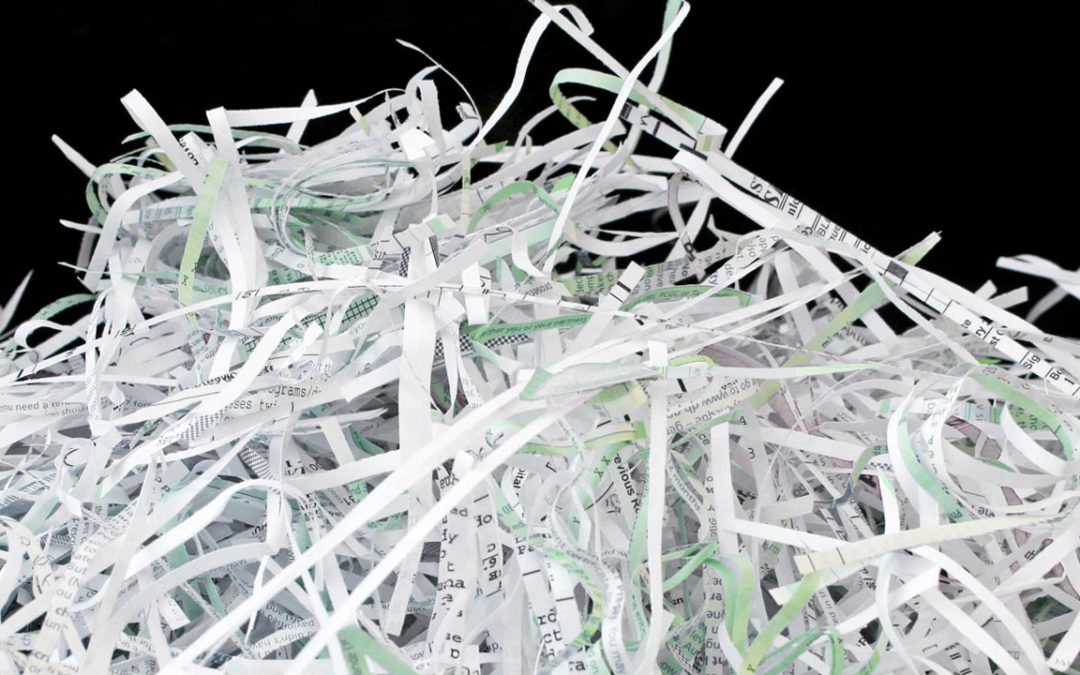We all know the basic bits of paper we should be shredding. You know, bank statements, old credit cards and such. But a lot of us suffer from the trap of being a bit lazy, and start thinking ‘oh well, it doesn’t really matter’ and start throwing things into the bin instead of the shredder. But slipping into the ‘it’ll never happen to me’ mentality can be dangerous, and ignoring basic security like shredding important documents can lead to trouble or even identity theft. So what documents should you be shredding?
Cashpoint Receipts
We all like to keep track of what we spend, which for many people includes what cash we take out at the machines. Getting cashpoint receipts is great – it shows you how much you have withdrawn and what you have left in your account at the time. When your bank statements come it’s useful (and easy) to compare the two and then file them away or dispose of them. But many people are forgetful, and sometimes you might go up to the cashpoint to find a brand new receipt, freshly printed but forgotten. These little receipts have a lot of personal data on them and could easily be used to defraud you and your bank account. In fact, last year discarded cashpoint receipts were named as one of the primary means of identity theft and account fraud. So make sure you pick up your receipts, and once you’re done with them make sure you’re shredding them, not just throwing them away.
Cancelled Or Unused Cheques
As surprising as it may be in the ‘contactless’ age, many people still use cheques regularly. If you have unused or cancelled cheques lying around, these can pose a pretty big security risk. If you simply throw them away it is all too easy for anyone to pick them up and write themselves a cheque from your account. Whether it’s a cancelled or an unused cheque, you need to make sure you scribble through at least the core spaces of the cheque (amount, signature, date and payee) before shredding them. Ideally a cross cut or even a micro cut shredder should be used for cheques for ultimate security. Remember, a lot of really important information is on that simple piece of paper – your branch number (or sort code), your account number, your name and even your signature if it’s a cancelled cheque, so it’s important to ensure they can’t be used by anyone else.
Boarding Passes
You’ve just come back from a nice holiday and now you feel happy, relaxed and (hopefully) tanned. But the unpacking nightmare is looming, and once you’ve powered your way through the dirty washing, piles of tacky souvenirs and got rid of the inexplicable pile of sand that’s somehow travelled with you, you find all of the documents you shoved in the bottom of your suitcase. You know the ones – insurance documents, hotel information and your boarding passes. You might want to keep your boarding pass a momento, but if you don’t, stop before you throw it in the bin. You see, your boarding pass might look innocent, but it actually carries an astonishing amount of information about you. It carries your name, your frequent flyer number, your flight number and relevant airport, a unique record key and tons of other information about you as a person, most of which you won’t even be able to see. That’s because it’s hidden in the QR code, which can be decoded and read using very basic tools. This makes it simple for criminals to track your movements around the world, cancel future plans, obtain tickets in your name or even gain access to your bank accounts.
With just these 3 things someone could wreak absolute havoc on your life and turn your world upside down, and the only thing standing between you and them is a shredder. This isn’t just a cut it up with scissors job – to protect yourself properly you need to shred and obliterate these documents. For more information about what documents you should be shredding (you’d be surprised!) get in touch with one of our team today.


Recent Comments